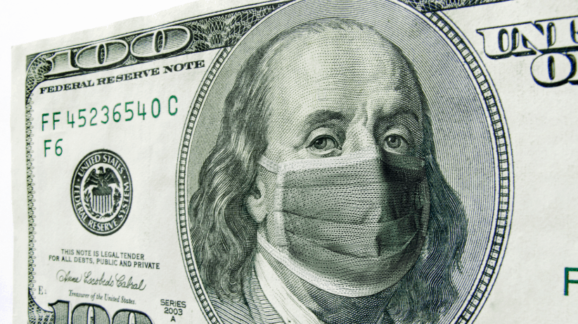An Effective Pandemic Response Would Be Deregulation
During a pandemic, regulations should not get between sick people and health care, or between hungry people and food. This also applies in normal times.
When the coronavirus first began to spread, doctors suddenly found they were unable to practice telemedicine or practice across state lines. Restaurants often weren’t allowed to shift from dine-in to takeout and delivery.
Fortunately, federal, state, and local policy makers acted almost immediately to get rid of many such rules. But if these rules were not needed during a crisis, they were probably never really needed in the first place. How many more never-needed rules are there still on the books, hurting the COVID-19 response? How might these rules harm future crisis responses?
Congress and the President’s pandemic response so far has mostly consisted of hasty “flash policy” such as stimulus and bailouts. However, the COVID-19 pandemic is different from a normal economic shock. It requires a different response. Standard stimulus policies attempt to stimulate more economic transactions between people. This is precisely how diseases spread. From a public health perspective, stimulus is unwise.
Even after contagion dies down, there remains the fact that stimulus is driven by politics more than economics. Much of the post-2008 financial crisis stimulus was ill-targeted or wasted.
The federal government by nature is a large and inflexible institution. People expect things of Washington that it simply cannot do. Bipartisan political dysfunction is making an already difficult task impossible.
As Congress gears up for a Phase 4 stimulus, it is crucial that regulatory reform be part of the package. The top two priorities now are keeping people safe and minimizing economic damage, in that order. Regulatory sludge, as legal scholar Cass Sunstein calls it, is harming both objectives.
That is why the Competitive Enterprise Institute has started a #NeverNeeded campaign. By collecting ideas on the #NeverNeeded Twitter hashtag, the neverneeded.cei.org website, and a new paper, policy makers already have a ready menu of reform options to act on, with a continuing pipeline of fresh ideas and public input.
Certain principles should be incorporated into policy responses to the crisis going forward;
- Suspend or repeal policies that make the crisis worse than it would otherwise be;
- Remove regulatory barriers that prevent an effective response to the crisis;
- Remove regulatory barriers that reduce resilience to changed economic behavior; and
- Put in place reforms that will allow the economy to reboot quickly.
Read the full article at Real Clear Markets.
